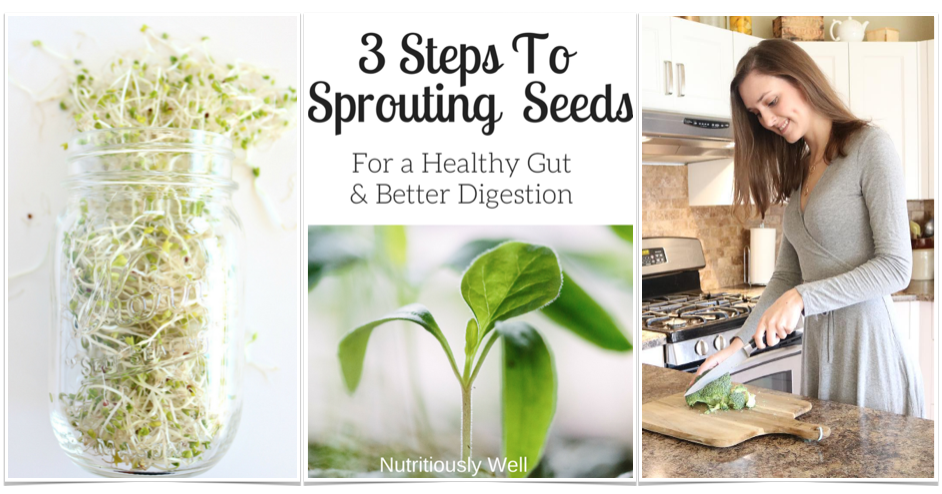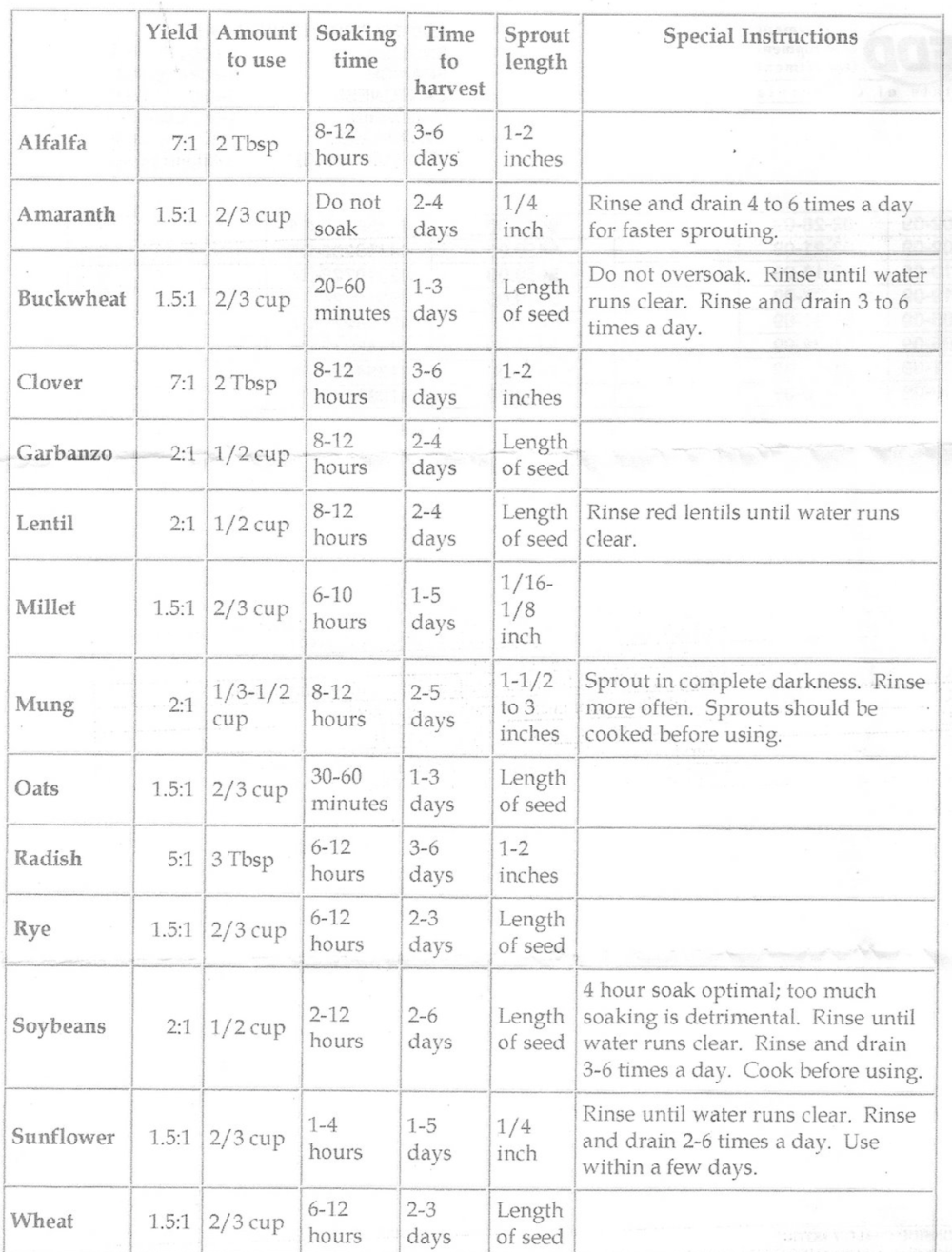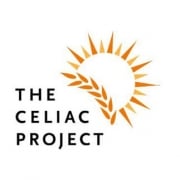Jump Start Your Health with Elizabeth Johnson, RHN
Take charge of the food you eat – grow it yourself!
Everything you ever wanted to know about sprouting (gluten-free) seeds!

What is sprouting?
Before I started sprouting I was slightly intimidated by it. I just assumed it was something that took a ton of time and energy, but It’s more of a set it and forget it, with a little bit of rinsing in between. So simple!
Sprouting is essentially the practice of germinating seeds. It involves soaking seeds, nuts, legumes or grains for several hours, then repeatedly rinsing them until they begin to develop a small growth of the plant. Soaking allows the sprout to grow.
Why Should You Sprout?
1. Fewer Anti Nutrients & Better Gut Health
- Many seeds contain anti-nutrients, substances that inhibit the absorption or use of other nutrients. For example, rice contains phytic acid, which inhibits mineral absorption.
- Other seeds contain substances such as lectins and saponins, which can interfere with the gut lining of the GI tract. This can cause damage to the cellular lining and the villi (small finger like projections in the intestines), leading to leaky gut and poor overall nutrient absorption.
- Many autoimmune conditions are said to originate in poor gut health. While you may feel quiet a bit better avoiding certain grains, nuts and seeds if you have an autoimmune condition. If you reintroduce one or more without an issue, sprouting can make them healthier for you and your gut.
2. Increases Nutrient Absorption
- By sprouting seeds, nutrients including amino acids (the building blocks of proteins), sugars in the form of glucose, and even vitamins and minerals become more available and absorbable.
3. Improves Digestion
- For many people, eating grains, beans, nuts and seeds is problematic when it comes to digestion and frequently causes inflammation. A major benefit of sprouting is that is unlocks beneficial enzymes, which make all types of grains, seeds, beans and nuts easier on the digestive system.
What Can I Sprout?
- Personally I eat only broccoli sprouts (so yummy), sunflower seed sprouts and radish sprouts, but you may be able to eat more of a variety than I can.
- Seeds – Radish Seeds Pumpkin Seeds Sesame SeedsSunflower Seeds Broccoli Seeds
- Beans – Chickpeas • Lentils • Adzuki • Beans • Black beans • White beans • Mung beans • Kidney beans • Navy beans • Peas
- Grains – Buckwheat • Amaranth • Millet • Oat groats • Quinoa • Wild Rice • Black Rice
What Can’t I Sprout?
- Nuts like pecans and walnuts cannot be sprouted, but soaking them is still beneficial.
- CAUTION: Sprouted kidney beans can cause death, no that’s not a joke. Always cook them first.
How to Sprout in 3 Steps:
- Soak seeds overnight (6-12 hours) in water. Optimal time for soaking is between 8 and 10 hours. I use a large glass mason jar (make sure it’s sanitized before hand).
- Rinse seeds 2-3 times daily, allow them to drain via sprouting jar or in tilted bowl. I fold a cloth and use it to tilt the mason jar to drain into the sink).
- Sprouts will be ready in 2 to 4 days, when sprout is ¼ inch.
How to store?
- Dry completely, and store in fridge for about 3 days.
Elizabeth’s Sprouting Cheatsheet
- *celiacs should visually inspect all seeds for gluten-containing grains and avoid rye and wheat seeds entirely.
- Printer-friendly Elizabeth’s Sprouting Cheatsheet

 Elizabeth Johnson, RHN is a Victoria Celiac and frequent contributor to The Celiac Scene. She shared her personal journey with celiac disease and professional expertise as a Registered Holistic Nutritionist in a series called ‘Jump Start Your Health with Elizabeth Johnson, RHN’ on such topics as
Elizabeth Johnson, RHN is a Victoria Celiac and frequent contributor to The Celiac Scene. She shared her personal journey with celiac disease and professional expertise as a Registered Holistic Nutritionist in a series called ‘Jump Start Your Health with Elizabeth Johnson, RHN’ on such topics as
- What’s the difference between Pre-biotics & Probiotics
- Everything you ever wanted to know about sprouting (gluten-free) seeds!
- Should I Set Up A Shared Gluten Kitchen – or a 100% Gluten Free One?
- Dairy-Free Sunbutter Chocolates – Just in Time for Easter!
- Sunbutter & Jelly Yogurt Breakfast Bowl Gluten-Free • Dairy-Free • Nut-Free • Allergy-Free
- Healthy Carrot Muffins – Allergy Free, Gluten Free, Dairy Free
 Elizabeth has just assumed a position with Vancouver Island Naturopathic Clinic & Integrated Health and is looking for ward to supporting you in her capacity there as a Registered Holistic Nutritionist.
Elizabeth has just assumed a position with Vancouver Island Naturopathic Clinic & Integrated Health and is looking for ward to supporting you in her capacity there as a Registered Holistic Nutritionist.
What is Registered Holistic Nutrition?
Holistic Nutrition is a natural approach to dietary health that uses evidence-based techniques to optimize nutrient status and diet. Instead of focusing on just one aspect of the person, or taking a one size fits all methodology, holistic nutrition evaluates the complete health history, emotional state, lifestyle habits and current diet habits of an individual to determine the root cause of his or her health.
What schooling does a Registered Holistic Nutritionist do?
Registered Holistic Nutritionist is a professional trained by the Canadian School of Natural Nutrition (CSNN) to educate individuals and groups about the benefits of nutrition. After a 2 year program through a school of nutrition, students are required to complete 50 practicum hours and pass a board exam, which is the same across Canada.
Why come see a Holistic Nutritionist?
- You’ll get an Individualized food plan based on YOU – your likes, dislikes, food intolerances, allergies, and or lifestyle.
- Stuck in a rut? You’ll get Inspiration, motivation, guidance. It’s like having a personalized food trainer.
- Get to the root cause of your sleep problems, low energy, skin issues, hormonal problems.
- Improve your digestion! Get your digestion on track and feel better.
- Learn strategies to develop a new relationship with food. When you learn how to eat better, your confidence, energy and well being often improves.
- A holistic nutritionist can teach you a holistic model of health by providing not only dietary guidance, but lifestyle suggestions too.
- No quick-fix fad or crash diets. Diets don’t work and are time-limited. Get healthy over time, weight loss will be a side effect, as well as glowing skin, better sleep and better digestion.
Holistic Nutrition can help support these areas:
- Weight loss
- Improving your overall nutrition
- Chronic Health Disorders
- Autoimmune Conditions
- Chronic Pain
- Women’s Health
- Family and Pregnancy Support
- Living with food allergies or intolerances
- Celiac Disease management
- Depression and Anxiety
- Hormonal Issues
- Aging
Are Holistic Nutritionists Covered On Benefits Programs?
It depends which company you use, – more and more companies are starting to cover Holistic Nutritionists. If your benefits plan is under Greenshield or Manulife, may often should be covered; however, it’s typically under “Nutritional Counselling / Social Work / Counselling” and is not the same as being covered with a Registered Dietician or Registered Nutritionist. If your benefits plan is under Sunlife, Great West Life or Pacific Blue Cross, there is a chance it’s covered. Always call your provider to ensure your coverage.
Contact Elizabeth at Vancouver Island Naturopathic Clinic
204-4480 West Saanich Road Victoria, B.C. V8Z 3E9
250.881.1806 | [email protected]
Facebook Twitter
HOURS: Monday & Wednesday: 12 pm – 8 pm Thursday: 9:30 am – 8 pm Tuesday, Friday & Saturday: 9 am – 5 pm Sunday: Closed

Elizabeth Johnson, RHN
About Elizabeth
In 2006, when Elizabeth was 15, she developed digestive symptoms after a case of food poisoning while vacationing in Tampa Bay – a hot dog eaten during triple overtime.
For six more years, her health continued to decline, she lost weight and suffered from severe fatigue, anemia, nausea, vomiting, bloating, fainting spells, joint pain and hair loss. At that point, she was finally diagnosed with celiac disease.
In 2014, while her health improved on a gluten-free diet, her diet of gluten-free processed cookies, pizzas and cakes wasn’t helping her health.
She continued to suffer with many of the same symptoms. After a bad viral infection that lead to viral encephalitis, she was also diagnosed with reactive arthritis. Elizabeth still struggles with ongoing nerve damage and pain on the right side of her body.
Elizabeth decided she had to get serious about restoring her health. She improved her diet, changed her mindset and enrolled in a Holistic Nutrition Diploma program. She discovered first hand how to provide her body with the nourishment it needed and her mind; positive thoughts. It transformed her life.
In 2016, Elizabeth graduated with a Diploma in Holistic Nutrition and started helping others!













